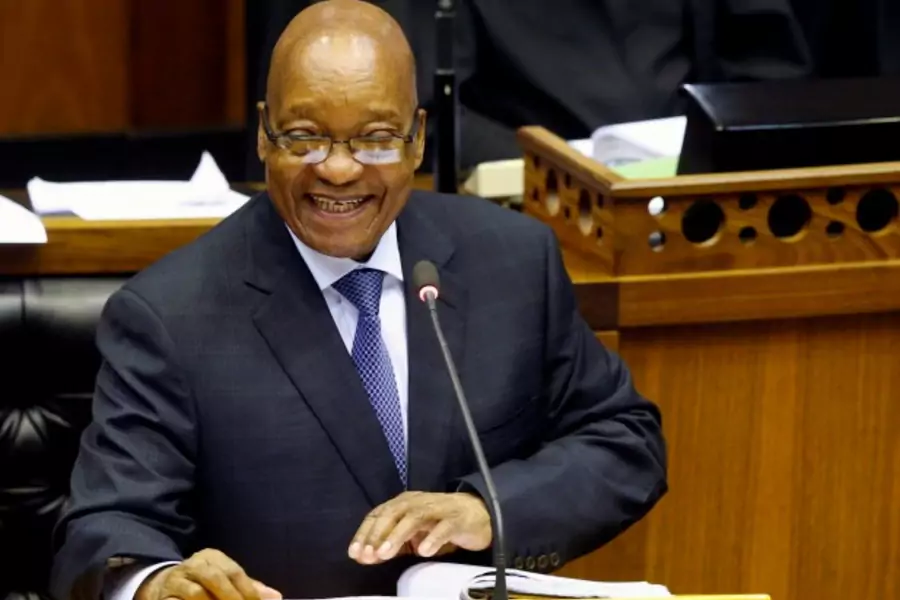South Africa’s President Zuma Avoids Party Ouster

The National Executive Committee (NEC) of the African National Congress (ANC) did not recall Jacob Zuma from the presidency at its meeting over the weekend of May 27. However, it was not the Zuma victory that it might appear. In fact, Zuma continues to lose support within his party, deepening internal divisions that are hurting the ANC’s ability to respond to shifts in the political mood among voters.
The ANC, reflecting its “struggle” roots, conducts party business behind closed doors, emphasizes party unity, and rarely acknowledges internal division. ANC Secretary General Gwede Mantashe briefed the media on May 28 on the NEC weekend meeting. True to form, he emphasized party unity, but he also acknowledged that there had been an internal debate over whether Zuma should go. Further, he said that the NEC directed the president to appoint a commission to investigate “state capture,” which Zuma and his cronies, the Gupta brothers, have been accused of. He also acknowledged that the campaign is underway for the party leadership elections in December. The ANC is usually uncomfortable with the idea of open campaigning for party leadership posts, preferring instead to avoid intra-party rivalries and create consensus among ANC leaders.
More on:
Preceding the investigative commission announcement at the NEC, a May 18 report issued by the South African Council of Churches (SACC) listed “state capture” as a greater concern than “corruption,” shining a harsh spotlight on President Zuma’s relationship with the Guptas. The SACC, comprising thirty-six member churches from across the country, holds strong moral authority in what is a deeply Christian nation.
Adding to the controversies surrounding Zuma, on May 28, South African Sunday papers published a leaked letter from President Zuma to the crown prince of Abu Dhabi in which the president referred to looking forward to making the United Arab Emirates his “second home.” Many South Africans are interpreting this as a part of Zuma’s advance planning should he need to leave South Africa abruptly.
Meanwhile, the erosion of ANC electoral support continues. In a recent local government by-election in Nqutu, a municipality in KwaZulu-Natal, the rival Inkatha Freedom Party won 58 percent of the votes cast. Despite campaigning by ANC political stars, including Zuma himself, the party saw its share slide from 43 percent in the previous election to 33 percent. While Nqutu is one of a small number of municipalities in KwaZulu-Natal that do not support the ANC, this result may be an early warning of eroding ANC support. Across the country in the Western Cape, a stronghold of the official opposition, voter turnout was up 13 percent as the Democratic Alliance increased its share of the vote from 47 percent to 57 percent in a by-election for local government in Beaufort West. This erosion of electoral support has already led to the ANC losing all major metro areas but one, Durban in KwaZulu-Natal.
More on:
 Online Store
Online Store